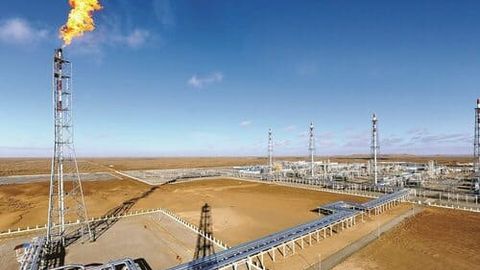Uzbekistan plans visa-free travel expansion to 50 countries by 2030
11:00 / 23.02.2026
Uzbekistan's public debt rises to $46.85bn, external loans fund budget deficit
10:00 / 23.02.2026
Uzbekistan, U.S. discuss water management, agricultural technology cooperation
09:00 / 23.02.2026
Turkmenistan processes 20mn tons of cargo in 2025 as transit volumes rise 28%
17:50 / 22.02.2026
Afghanistan may face spring food crisis as funding gaps persist, WFP warns
16:21 / 22.02.2026
Recommendations
Menu
Good news:
Tags
Grow your business with us
Advertise on Daryo.uzIndividual approach and exclusive materials
Ad-free site readingSubscribe
25 000 sum per month






Comments
To leave a comment, first